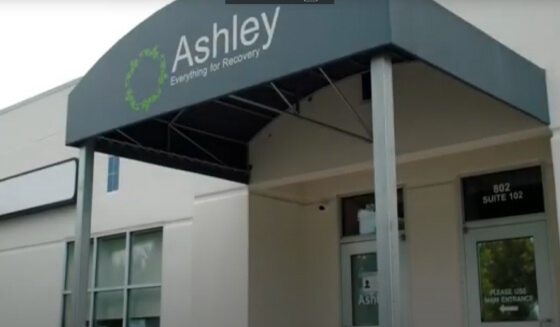

Maryland Methamphetamine Addiction Treatment
Understanding Methamphetamine Addiction
Methamphetamine addiction often begins with casual use, sometimes stemming from a desire to lose weight, enhance performance, or escape from reality. Initial experiences may include heightened energy, improved focus, and an overwhelming sense of well-being. However, the euphoric effects can quickly lead to increased tolerance, prompting users to consume more to achieve the same high.
As the brain adapts to meth, the user may find it increasingly difficult to experience pleasure from everyday activities, leading them to rely on the drug. The risk factors for addiction include genetic predisposition, mental health issues, and environmental influences, making some individuals more susceptible than others.
Methamphetamine is highly addictive due to its ability to produce a powerful sense of pleasure. Its effects are immediate and intense, reinforcing the desire to continue using. Additionally, meth can alter brain chemistry, diminishing the brain’s natural ability to experience pleasure. This creates a cycle where the user feels compelled to keep taking the drug, despite negative consequences. Over time, the physical and psychological grip of meth can lead to severe dependence and addiction, requiring professional treatment for recovery.
What is Methamphetamine?
Methamphetamine, commonly known as meth, is a powerful central nervous system stimulant. It comes in various forms, including crystalline (known as crystal meth) and powder. Users often smoke, snort, inject, or ingest meth, which rapidly affects the brain, leading to intense feelings of euphoria. This drug increases the release of dopamine, a neurotransmitter associated with pleasure, motivation, and reward. Over time, meth use can lead to severe changes in brain structure and function, contributing to the cycle of addiction.
What to Expect From Meth Addiction Treatment
At Ashley Addiction Treatment, we offer a range of comprehensive treatment approaches tailored to meet the unique needs of individuals struggling with methamphetamine addiction. Our programs include:
Signs of Meth Addiction
Recognizing the signs of methamphetamine addiction is crucial for early intervention. Common symptoms include:
Increased Energy and Wakefulness
Methamphetamine is a powerful stimulant that significantly boosts energy levels. Users often feel an intense rush of energy and alertness, which can lead to prolonged periods of wakefulness. This can result in insomnia or disrupted sleep patterns, as users may stay awake for days at a time, driven by an overwhelming sense of invincibility and focus.
Euphoria Followed by Depression or Anxiety
Initially, methamphetamine use can lead to intense feelings of euphoria and well-being, often described as a “high.” However, this is often followed by a crash, which can manifest as severe depression, anxiety, irritability, or mood swings. Users may experience intense cravings for the drug during these low periods, leading to a cyclical pattern of use and withdrawal.
Changes in Appetite and Weight
Methamphetamine use typically suppresses appetite, leading to drastic weight loss. Users may skip meals or eat very little, resulting in noticeable changes in their physical appearance. Over time, this can lead to malnutrition and other health issues. Conversely, some individuals may binge on food after a period of use, contributing to erratic weight fluctuations.
Neglecting Hygiene and Appearance
As addiction progresses, individuals often prioritize drug use over self-care. This can manifest as neglecting personal hygiene, wearing dirty clothes, or exhibiting a disheveled appearance. The physical toll of meth use, including dental problems (“meth mouth”) and skin issues, may also become apparent.
Social Withdrawal and Isolation
Methamphetamine addiction can lead to significant changes in social behavior. Users may withdraw from friends and family, becoming increasingly isolated as they prioritize drug use over relationships. This can also result in a loss of interest in activities they once enjoyed, leading to further loneliness and depression.
Risk-Taking Behaviors
Individuals struggling with methamphetamine addiction may engage in risky behaviors, such as unsafe sexual practices, driving recklessly, or participating in illegal activities. This behavior is often driven by impaired judgment and a reduced ability to weigh the consequences of their actions, which can put them in dangerous situations.
Common Withdrawal Symptoms
- Fatigue and extreme lethargy
- Depression and anxiety
- Intense cravings
- Sleep disturbances
- Increased appetite
- Mood swings
Inpatient Meth Rehab in Maryland
Inpatient meth rehab at Ashley provides a structured and supportive environment for individuals to focus solely on their recovery. Our facilities are equipped with experienced staff and resources to ensure comprehensive care. Patients participate in a range of therapeutic activities, group sessions, and one-on-one counseling, fostering a community of support. This immersive experience allows individuals to build a strong foundation for recovery, free from the triggers of everyday life.


Outpatient Meth Rehab In Maryland
For those who require flexibility in their treatment, our outpatient rehab program in Maryland offers an effective alternative. Participants can engage in treatment while maintaining their daily responsibilities, such as work or family obligations. Our outpatient services include individual and group therapy, educational workshops, and ongoing support. This approach helps individuals integrate recovery into their lives, promoting sustained sobriety while allowing for real-world practice of coping strategies.
Supporting Your Entire Recovery
At Ashley Addiction Treatment, our goal is to provide comprehensive, personalized care to support individuals through every stage of their recovery from Methamphetamine addiction. If you or a loved one is struggling with Methamphetamine addiction, contact us today to learn more about our treatment options and begin the journey to a healthier, drug-free life. If you or someone you know is struggling with addiction, please reach out to our helpline, available 7 days a week, at 1-800-799-HOPE (4673), or contact us here for more information on how we can help.

